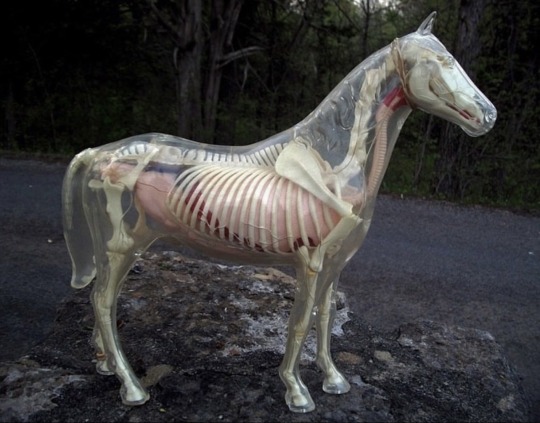#science model
Explore tagged Tumblr posts
Video
youtube
kidney working model with stand for science fair exhibition || School Sc...
0 notes
Text


1960s anatomical Horse sculpture, found via eBay
11K notes
·
View notes
Text




Science AU Thundercracker model by @heliotr0pic ! THANK YOU AGAIN OH MY GOD HE’S BEEN SO FUN TO POSE AND PLAY WITH, GENUINELY SUCH A WELL-MADE AND BEAUTIFUL MODEL !! When I get a handle on Blender Animation I will make him move and groove ! imagine he's running from a fusion cannon blast in the last one BAHAHA
#i will also 3d print him into a cute ramen topper TRUST#LOTS OF COMPLIMENTS FROM MY 3D PEERS WHO WERE GIVING ME A BLENDER RUNDOWN BTW THIS IS SUCH A WELL MADE RIG#IVE ONLY EVER USED MAYA FOR 3D ANIMATION AND ZBRUSH FOR MODELING SO BLENDER IS A DIFFERENT KIND OF BEAST BUT. I AM DETERMINED TO LEARN#transformers#tf science cont#thundercracker
762 notes
·
View notes
Text













The amazing Asuka and Eva Unit 02 3d creations of Jaeyong Bae - https://www.this-is-cool.co.uk/amazing-asuka-and-eva-unit-02-3d-creations-by-jaeyong-bae/
#Jaeyong Bae#Asuka#eva unit 02#3d art#3d artist#this-is-cool#scififantasyhorror#digital art#sci-fi art#concept art#science fiction art#sci-fi artist#digital artist#concept artist#3d artwork#3d model
158 notes
·
View notes
Text

okay thats enough high-concept fanart. time for something stupid.

^ for the uninitiated
#this is samhainian's fault again because she said this to me in the eggman voice while i was calling and sending sifloop wips#if i am honest i will say i am surprised i did not see this already but perhaps it is because this meme is so firmly within my vocabulary#anyway the more on model i draw the sillier the post is likely to be. its science.#isat spoilers#isat#in stars and time#in stars and time spoilers#sifloop#doodlebyte
770 notes
·
View notes
Text

Xenomorph
155 notes
·
View notes
Text
When summarizing scientific studies, large language models (LLMs) like ChatGPT and DeepSeek produce inaccurate conclusions in up to 73% of cases, according to a study by Uwe Peters (Utrecht University) and Benjamin Chin-Yee (Western University, Canada/University of Cambridge, UK). The researchers tested the most prominent LLMs and analyzed thousands of chatbot-generated science summaries, revealing that most models consistently produced broader conclusions than those in the summarized texts. Surprisingly, prompts for accuracy increased the problem and newer LLMs performed worse than older ones. The work is published in the journal Royal Society Open Science.
Continue Reading.
116 notes
·
View notes
Text

The model sheet for one James Tiberius Kirk from Star Trek: The Animated Series.
#Star Trek#Star Trek: The Animated Series#Captain James T. Kirk#Filmation#animation#model sheet#science fiction
86 notes
·
View notes
Text
Still messing around with this model, I'm happy how the armor went out. And also here's this character I drew based on this

Fyi, my idea was a melanistic Tharr with a furnace inside their chest.
#myart#oc#alien#alien species#original alien species#sci fi#science fiction#fantasy#minecraft#minecraft mods#minecraft custom player model#custom player model#art#creature#creature design#speculative biology#speculative evolution#spec bio#spec evo#original species#original character
230 notes
·
View notes
Text

Kryters with the MST3K bots
#the bots would go back to Joel and be like ‘why does kryten get opposable thumbs and we don’t???’’#they’d be aghast at kryten doing household tasks for humans#they make their human dad do everything for them#Joel is just happy his robot children have a nice robot role model#kryten would be a good role model for them but they would be horrible influences on him#kryten red dwarf#kryten#crow t robot#tom servo#gpc mst3k#red dwarf#mystery science theater 3000#mst3k
59 notes
·
View notes
Text

Why do old cars always get my attention especially "Porsche"?.
#classic cars#peace#older is better#porsche#classic porsche#beauty#aesthetic#roads#comfort#compliment#nature#environment#science#explore#explained#unreal engine#design#pretty face#sexy hunk#specs appeal#appealing model#90s aesthetic#nostalgia#ethereal beauty#forever
57 notes
·
View notes
Text

Xenomorph
99 notes
·
View notes
Text
Through his research at Caltech, a local high school student revealed 1.5 million previously unknown objects in space, broadened the potential of a NASA mission, and published a single-author paper. Matteo (Matthew) Paz's article published in The Astronomical Journal describes a new AI algorithm he developed that led to these discoveries and that can be adapted by other astronomers and astrophysicists for their own research.
Continue Reading.
125 notes
·
View notes
Text

Prepping the filming model of the NSEA Protector for Galaxy Quest (1999).
76 notes
·
View notes
Text

I made another minecraft model based on oc from my species

Here's how it looks in game. I'm supper happy how it went out
#minecraft#mc#minecraft mods#minecraft custom player model#minecraft cpm#myart#oc#original character#minecraft character#alien#alien species#original alien species#sci fi#science fiction#creature#creature design#original species#furry#fantasy
77 notes
·
View notes
Text
i need more episodes about adrien just trying new things and gradually figuring out what he wants to spend his time doing, what classes and hobbies he genuinely enjoys, and then eventually, what he'd like to pursue professionally. i never really thought about running before sublimation and while i still don't think that's actually his passion, i love that he connected the act of running to the freedom and joy he gets when he's being chat noir, running around paris saving people. one of my favorite things about adrien that a lot of people in fandom especially in fics miss is that just because he's decent or even great at several things doesn't mean he has a personal connection to that thing. in early ml he was acting in his friends' student films, playing sports to different results, fencing with his friends, participating in band, even modeling for fun. in climatiqueen, he discovered he was decent at drawing, a mess with labwork, quick with languages (no surprise there), and v new to baking—all things he could improve upon but nothing that made him feel passion. but he specified the reason he had fun trying those things wasn't the things themselves but because he was doing them with marinette, same as before when he took skills he was forced to acquire by his father and re-utilized them to hang out with his friends despite not feeling a personal connection to any of those hobbies or talents. i don't know if the show plans on him discovering this soon (they're sooooo young, i hate that he is even stressing about this just because his friends are not normal and because the french school system has most people declare their course of study in lycée) but i'm just excited to see him branch out and try new things and get the life experience he was denied when he was younger.
and running away from the agreste manor (where he was confined and forced to be a perfect mold) as his first step toward self discovery? brilliant imagery.
#adrien agreste#ml spoilers#ml s6 spoilers#miraculous#miraculous ladybug#i don't know exactly where they'll go from here but my guess is “running” isn't going to lead to adrien pursuing track & field seriously#but rather that the reason he went from realizing he LOVES being chat noir more than anything else to running is that sense of freedom and#adrenaline rush he gets in battle. (running is like the first thing he's doing solely because he likes the way he feels when he does it#so there's no way they'll make him do it competitively the way sublime does because that's the kind of thing his father did:#all his hobbies and skills had to serve a purpose and serve as an example of him being exceptional#i'm excited for him to just do things because he likes them and maybe eventually find something he wants to dedicate his life to from there#looking at the other things he enjoys (not the activities themselves but lending his talents to his friends so they can pursue their own#interests and dreams) and the general sense that part of what he's gotta love about being chat noir is being able to actually help people#that it makes him feel more fulfilled than merely being some kind of celebrity model or actor or musician#i feel like whatever his true passion is has to combine that rush of freedom with that act of service#i've actually never read a fic where his true calling is something like this over being a (depressed) celeb in a career he hates#(maybe the ones that have him pursue teaching rather than just science for research or knowledge's sake)#so i'm soooo curious about this even if it (realistically!) doesn't happen in this one season#mildly related but mentioned it offhand in another post but adrien taking ancient greek just for the hell of it makes me so happy#like that's my bby nerd trying all things even if none of his friends have any interest in those subjects ilhsm
47 notes
·
View notes